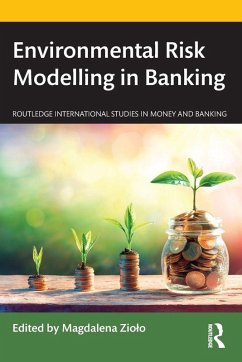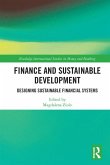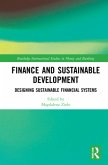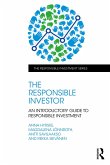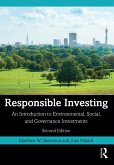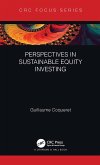Environmental risk directly affects the financial stability of banks since they bear the financial consequences of the loss of liquidity of the entities to which they lend and of the financial penalties imposed resulting from the failure to comply with regulations and for actions taken that are harmful to the natural environment.
This book explores the impact of environmental risk on the banking sector and analyzes strategies to mitigate this risk with a special emphasis on the role of modelling. It argues that environmental risk modelling allows banks to estimate the patterns and consequences of environmental risk on their operations, and to take measures within the context of asset and liability management to minimize the likelihood of losses. An important role here is played by the environmental risk modelling methodology as well as the software and mathematical and econometric models used. It examines banks' responses to macroprudential risk, particularly from thepoint of view of their adaptation strategies; the mechanisms of its spread; risk management and modelling; and sustainable business models. It introduces the basic concepts, definitions, and regulations concerning this type of risk, within the context of its influence on the banking industry.
The book is primarily based on a quantitative and qualitative approach and proposes the delivery of a new methodology of environmental risk management and modelling in the banking sector. As such, it will appeal to researchers, scholars, and students of environmental economics, finance and banking, sociology, law, and political sciences.
This book explores the impact of environmental risk on the banking sector and analyzes strategies to mitigate this risk with a special emphasis on the role of modelling. It argues that environmental risk modelling allows banks to estimate the patterns and consequences of environmental risk on their operations, and to take measures within the context of asset and liability management to minimize the likelihood of losses. An important role here is played by the environmental risk modelling methodology as well as the software and mathematical and econometric models used. It examines banks' responses to macroprudential risk, particularly from thepoint of view of their adaptation strategies; the mechanisms of its spread; risk management and modelling; and sustainable business models. It introduces the basic concepts, definitions, and regulations concerning this type of risk, within the context of its influence on the banking industry.
The book is primarily based on a quantitative and qualitative approach and proposes the delivery of a new methodology of environmental risk management and modelling in the banking sector. As such, it will appeal to researchers, scholars, and students of environmental economics, finance and banking, sociology, law, and political sciences.

